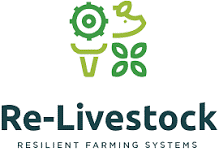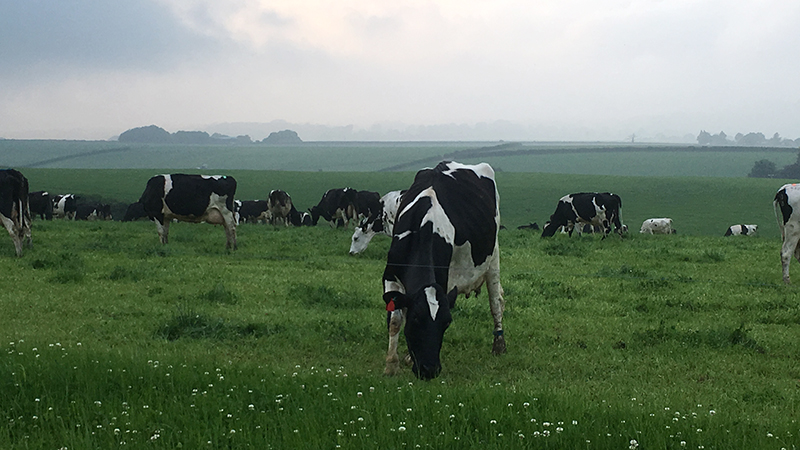
Code : UKRI Code: 10048150
Contract Period : 01/09/2022 - 31/08/2026
Project Webpage : https://re-livestock.eu/
Main Funder : UKRI
ORC Staff Contact : Lindsay Whistance

The Re-Livestock project aims to promote best practice and resilience in livestock systems in the face of climate change.
The project aims to evaluate and mobilize the adoption of innovative practices in livestock systems to increase their capacity to deal with climate change impacts and to reduce greenhouse gas (GHG) emissions. These will be considered cross-scale at animal, herd, farm, sector and regional levels and focus areas will include animal feeding, breeding, welfare, management, environmental and socio-economic assessments along with policy analysis. Novel, integrated approaches will be developed for intensive and extensive dairy, beef and pig systems in different geographic regions.
Co-innovation and design are important elements of the project and a strong collaboration with industry stakeholders will ensure relevance and promote adoption. Stakeholder contributions to the project include national farmer groups and stakeholder forums, with a European multi-actor platform further promoting knowledge sharing and adoption across the wider community.
ORC is contributing to several tasks in the project including developing the PG Tool for characterising and assessing innovative case-study farms and negotiating solutions for sustainability with stakeholders. For the assessment of livestock farm systems, ORC is engaged with tasks related to method development and assessment of carbon and GHG emissions, economic and life cycle assessments of mitigation and adaptation strategies along with multi-criteria farm sustainability assessments to identify trade-offs between different sustainability and climate impacts, leading to both an assessment of overall resilience and to an advancement in methods of farm resilience assessment. An animal welfare assessment will also be carried out. As part of this, predicted changes to weather patterns will be reviewed up to the year 2100 for different geographical regions. We will also carry out a literature review of animal welfare risks and hazards (R&H) related to climate change, identifying both R&H and potential solutions at multiple levels including breeding, feeding, housing, system and management. At the end of the project, potential solutions from project trials will be included as well as any continuing risks or hazards to welfare.
ORC activity is underway in several work packages.
Re-understanding and mobilising adoption through multi-actor engagement. The Public Goods Tool is being refined with output styles being determined for reporting to farmers.
Re-managing at farm level for livestock resilience. ORC is preparing for sample collections for a trial on resilient fodder systems. This entails liaising with farmers, tree growers, feed processors, and the laboratory that will be analysing samples for nutritional and plant secondary metabolite content and in vitro methane emissions.
Re-assessment of livestock systems. ORC have undertaken an animal welfare literature review which includes over 300 papers. A second short review is covering current models used to assess thermal stress, hazards and risks to welfare from climate change. In a new report three crucial methodological choices when applying life cycle assessments (LCA) in livestock systems were investigated and discussed.
Knowledge exchange activity continues with farmer-focussed conferences and webinars demonstrating project focus and activity.
Project Coordinator: CSIC (Spain)
Project Partners: